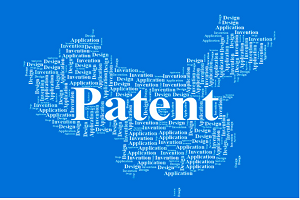Contents
Introduction:
As global economic integration deepens, “Intellectual Property Protection in China” is becoming increasingly crucial. With its vast potential and opportunities, China has attracted widespread attention from global investors. The rise of artificial intelligence (AI) technology and its rapid development worldwide further underscores the importance of intellectual property (IP) protection in this vibrant market. Not only is IP a key indicator of innovation and competitiveness, but an effective IP strategy also serves as a legal safeguard for foreign businesses looking to succeed in the Chinese market. This article will delve into the current state and future trends of intellectual property protection in China, offering strategic insights and practical advice to help foreign enterprises effectively protect and utilize their intellectual property in China.
The Three Major Categories of Intellectual Property in China
- Trademark: As a key identifier of a business brand, effective trademark management is crucial for protecting market brands from infringement, maintaining corporate image, and consumer rights.
- Copyright: In today’s digitized and globally connected world, copyright protection covers a broad spectrum from traditional media to digital content and software. Particularly, computer software copyright in China is rigorously protected, ensuring that the intellectual property rights of software developers are effectively maintained.
- Patent: Protecting technological innovation and inventions with patents is an essential component of a company’s core competitiveness, especially important for enterprises in the technology and manufacturing sectors.
GWBMA Platform: A Comprehensive Intellectual Property In China Management Solution
The GWBMA IP platform is designed for foreign enterprises, providing a one-stop service from IP registration to comprehensive management, ensuring that foreign companies can effectively protect their innovations and assets in the Chinese market:
- Trademark Registration: Through GWBMA’s trademark registration services, companies can automate the process of trademark search and application, with the platform offering a transparent fee structure and detailed progress updates.
- Copyright Registration: GWBMA’s copyright registration services simplify the process of registering copyright from literary works to software products, enhancing efficiency and accuracy with an automated system.
- Patent Application: Patent registration services provide comprehensive support from technical analysis to application submission, ensuring that a company’s innovations are legally protected.
WFOE and Its Strategic Advantages in IP Management in China
Wholly Foreign-Owned Enterprises (WFOE) are a common foreign-funded enterprise in China, allowing foreign investors to hold 100% of the ownership without a Chinese partner. This form of enterprise is very attractive to foreign companies that wish to maintain complete control over business operations and management. Related to IP protection, a WFOE can directly own and utilize intellectual property such as trademarks, patents, and copyrights. This provides foreign companies with a direct way to protect their technology and brands, avoiding the potential for rights sharing or conflicts that can occur with joint ventures. Having their IP enables WFOEs to compete more effectively in the Chinese market, protecting their products or services from infringement, while also commercializing their IP through licensing or other business arrangements. Compared to joint ventures, the establishment and operation of a WFOE are more flexible, allowing for quicker adjustment of business strategies and IP management in response to market changes.
GWBMA IP in China Case Studies: Success Stories
Specific case studies illustrate how international companies have successfully navigated the IP landscape in China using the GWBMA platform:
- Tech Innovators Ward Off Imitators: An American technology company successfully registered its patents and trademarks through GWBMA, preventing counterfeits from flooding the market.
- Protecting Creative Rights: A European software firm used GWBMA’s copyright services to protect its digital platforms from piracy, ensuring its creative assets remained protected.
- Market Domination with Strategic IP Management: A multinational manufacturer used GWBMA’s services to secure critical patents, enabling it to dominate its industry.
The Advent of AI and Its Impact on Intellectual Property Protection in China
With the rapid development of AI technology, it is expected that by 2025, AI robots will be widely used in various industries. This transformation will not only promote industry upgrading but also pose new challenges and opportunities for IP protection:
- Challenges: The widespread application of AI robots may challenge the applicability of traditional IP laws. For instance, how to define the ownership of works and inventions created by AI, and how to protect data and algorithms generated by AI, are urgent issues to be addressed.
- Opportunities: AI technology can be used to improve IP management and enforcement. Utilizing AI for intelligent searches of trademarks and patents, monitoring for infringement, and identifying counterfeit goods can significantly enhance the efficiency and effectiveness of IP protection.
- Policy Response: In response to the impacts of AI, the Chinese government and the international community need to formulate and update relevant laws and regulations to ensure that the IP protection system can adapt to the needs of new technological developments. This includes clarifying the legal status and rights of AI in copyright, patent, and trademark laws.
Implementing Intellectual Property Strategies: Finding the Best Ways in China
To successfully implement and maintain intellectual property in the Chinese market, foreign enterprises should consider the following strategies:
- Fully Utilize the Existing Legal Framework: Foreign enterprises should thoroughly understand and utilize the current intellectual property laws in China. This includes a deep understanding of the laws protecting trademarks, copyrights, and patents to ensure that their application strategies comply with Chinese legal standards.
- Collaboration with Diligent & Integrity Law Firm through GWBMA: By partnering with GWBMA, a professional intellectual property management platform, Diligent & Integrity Law Firm helps foreign enterprises effectively navigate complex registration processes, while also providing professional legal and administrative support. They offer comprehensive services for foreign clients, including coverage across all networks, multimedia content, data cleansing, blockchain certification, judicial effectiveness, flexible expansion, and global computing centers.
- Customized Intellectual Property Protection Strategies: Based on the specific needs and characteristics of domestic or foreign enterprises, develop customized intellectual property protection strategies. For example, adopt different patent protection strategies for different product lines and markets to ensure comprehensive protection.
- Strengthen Monitoring and Enforcement: Use technological tools to monitor the market and promptly identify and address infringement activities. Collaborate with Chinese legal service providers to ensure quick and effective legal actions are taken when infringements are discovered.
Conclusion:
As China continues to open its market and strengthen the enforcement of intellectual property laws, the prospects for foreign enterprises in China look promising. However, the key to success lies in deeply understanding and applying the Chinese intellectual property legal framework, as well as choosing the right partners and platforms, such as GWBMA, to protect and manage these valuable assets. With proactive strategies and advanced management tools, foreign businesses can not only effectively protect their intellectual property but also achieve sustained commercial success in the Chinese market.







